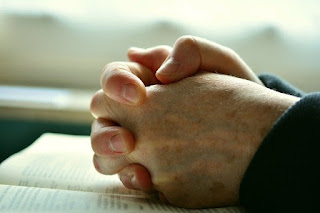During these difficult times, it’s essential to manage and use your time wisely. Many of us are leading more isolated existences, and some are finding it challenging to prioritize their recovery. If you are cut off from your usual support channels (in-person meetings) because of COVID-19, please consider establishing a routine, prioritizing meditation and prayer.
In early recovery, many have a hard time processing their thoughts, leading to old patterns coming back into the picture. If you are spending more time at home than in past months, it can be hazardous to your recovery.
It’s vital to find healthy ways to occupy your time and stick to a routine. Writing down a schedule will help you adhere to your routine, which will strengthen your program in turn. Determine how often you need to pray and meditate, attend meetings virtually or in-person when safe and available, eat healthy, and exercise.
All of the above activities will help you in your recovery and weather the pandemic until life returns to normal. Always remember that you’re not alone. Your support network is still a phone call away. Call someone whenever you find yourself struggling with a specific matter, especially if you are craving drugs and alcohol.
With the above in mind, if you can adhere to a routine, you will be less likely to spend too much time in your head. Routines help individuals stay focused, and writing down your daily schedule ahead of time will help you stay on track. Many will argue that the time you spend praying and meditating is salient.
Is Prayer and Meditation Important to Your Recovery?
Those working a faith-based program of addiction recovery must prioritize their daily prayer and meditation. Upon waking each day, it’s always beneficial to start your day by praying.
“In praying, we ask simply that throughout the day God place in us the best understanding of His will that we can have for that day, and that we be given the grace by which we may carry it out.” —Twelve Steps and Twelve Traditions, Pg. 102—
People who meditate find that they are more open-minded and better able to receive guidance from the “higher power.” Remember, each person can pray and meditate in their own way; there is no right way to communicate with your higher power.
Having a conscious contact with a higher power is vital, but many people new to the program have a hard time with spirituality. You do not have to dive headfirst into spiritual concepts; you only have to keep an open mind when self-examining. Remember, spirituality isn’t religion; but, religion is often a component of people’s spirituality.
“There is a direct linkage among self-examination, meditation, and prayer. Taken separately, these practices can bring much relief and benefit. But when they are logically related and interwoven, the result is an unshakable foundation for life.” —Twelve Steps and Twelve Traditions, Pg. 98—
Prayer, meditation, and self-examination are critical to navigating life today. It isn’t comfortable being cut off from one another; fellowship feels a little different from afar. However, the knowledge that you have supportive peers advocating for your well-being should give you pause and make you feel grateful.
If you are not praying, it’s never too late to start. If you find it challenging to pray, then ask one of your peers for guidance. Many people struggled at first like you are; they can help you introduce prayer and meditation into your routine. Once again, remember—you are not alone.
Faith-Based Addiction Treatment Program
Please contact Celebrate Hope if you are struggling with drugs or alcohol. Our team utilizes comprehensive, cutting edge treatment and offers Christian counseling. We can help you break the cycle of addiction and reconnect with your higher power Jesus Christ.

